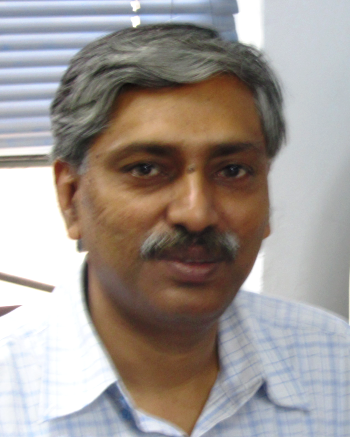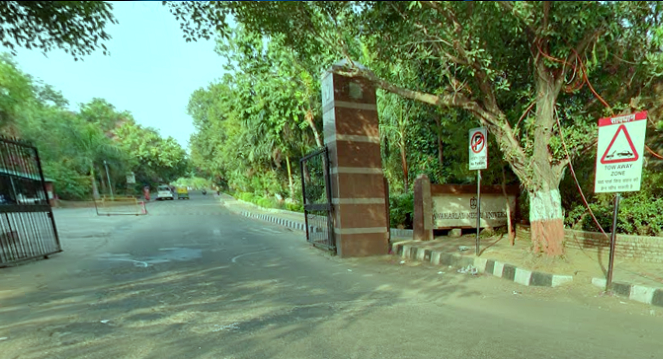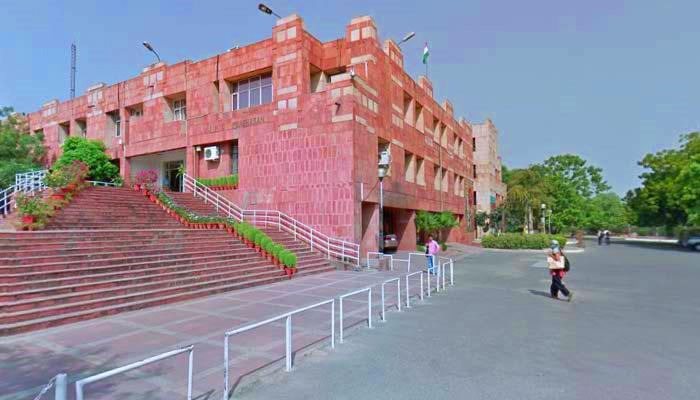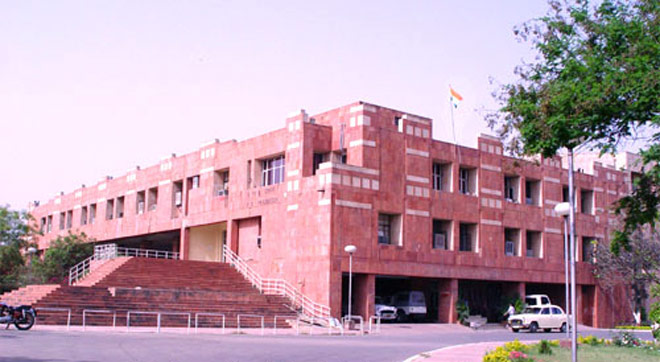Rescuing Science from Company Boardrooms and the Corridors of Power
While social scientists have written extensively on the philosophy/politics of science, The New Leam believes that it is important to converse with a practicing scientist and understand the critical voice emerging from within. In this conversation Professor K.J. Mukherjee—a leading scientist in the field of biotechnology teaching at Jawaharlal Nehru University—has made us aware of the dialectic of science: its complex engagement with the project of nation-making and the doctrine of market-driven techno-progress.
(Q) The word ‘science’ is used quite frequently—natural sciences, human sciences, ‘scientific’ socialism, ‘scientific’ parenting… Is the word ‘science’ used rather casually? According to you, what is the ethos of science? What are its fundamental characteristics?
The word science tends to mean different things to different people; for some it simply means a more rational or even a more methodical approach to problem solving rather than a blind faith or tradition. Here the traditional and modern are somehow treated as opposite poles which may be an oversimplification. As an example, modern medicine has many irrational practises especially promoted by the drug industry as more “scientific” while there are many good doctors who (correctly in my view) oppose these practises as unscientific (essentially irrational drug use). On the other hand many superstitions are countered by rationalists (again correctly in my opinion ) as unscientific. Usually the word scientific is added to claim a superior epistemology, riding piggy back on the prestige of science sometimes in silly ways like in popular TV ads.
Most scientists on the other hand (especially in India) tend to treat their “scientific work” purely as a job and not think too much about it. For them science is a set of experimental protocols to be followed blindly and the more sophisticated the instrument used (for measuring data) the better is the quality of science. Also science in this country is mostly derivative where the ideas generated in the West are retested and fine tuned. That is why, you often see this dichotomy of practising scientists in the forefront on “feeding milk to Ganesha idols” or talking about how in ancient times we had aeroplanes “pushpak viman” and other such marvels.
The ethos of science which I believe has a limited but important role is primarily in the field of natural sciences where we ask questions about how nature works and try and design clever strategies to answer these questions. These can sometimes give insights to the human condition and teach us humility. Also it gives rise to technology which has a huge impact on society. Otherwise science or the scientific method has very little role in resolving social issues which require a different set of epistemological tools.
(Q) Does science require a conducive political culture to develop? What is the relationship between science and democracy?
In India the scientific community is part of the larger society and hence contains all the problems which plague our society. There is a lot of hierarchy, a feudal work culture where young scientists work under the thumb of older and more powerful people. This stifles creativity and breeds frustration. Good science is confused with expensive chemicals and infrastructure, and since the little money available for scientific research gets unevenly distributed there is a perennial fight for funds. Political patronage plays a significant role is labelling some persons as stars who then continue this culture of patronage. A more democratic setup would allow the younger people to breathe and give free rein to their imagination. The larger issue of how this would then impact on society and whether more meaningful and socially relevant science can be done is a difficult question to answer.
The origins of science may lie in questioning feudal authority (the church) but this was because even while asking questions about the nature of the physical world science came into conflict with the church which had a clear/ defined vision of the nature of physical reality. Science may thus appear to have pro democracy roots, but today the nature of science has changed and it is promoted by, and is very much part of, the establishment. The issue therefore is not of science helping democracy rather it is about democratising science so that it generates knowledge which improves the human condition.
(Q) Possibly for lay persons, the power of science is felt in technological miracles. Do you feel that the cult of technocracy often misses the spirit of science?
More importantly technocracy is a double edged sword and its history is littered with both great triumphs and great horrors. Today it is technology which has become the prime driver of science and not the other way round. Science creates knowledge which then opens up a bouquet of solutions. Which of these solutions (to a problem) is chosen and promoted to become THE technology is often decided in company boardrooms and the corridors of power. Here social good takes a backseat to profit. And this is the face of science that we see today. This extremely undemocratic process of converting scientific knowledge (which is full of potential) to a specific technology which serves vested interests is the most dangerous development today. This process then extends backward by forcing scientific research into narrow compartments and specific routes with pre-defined goals. The quest for knowledge becomes a purely commercially driven proposition. This is the phenomenon which has given rise to BIG science in biotechnology, nuclear science and computers.
(Q) Modern nation-states all over the world have always pampered science, and in the ideology of nationalism science is often projected as a tool for nation-making—industrial development, economic progress, military establishment. Is it true that science has become closer to power—an ideology of the state?
The Nehruvian vision of science though simplistic was essentially positive; a fledging nation desperately in need of industry and scientific and technological manpower to accelerate growth, a scientific temper or more appropriately a scientific rationality to combat widespread superstitions in our society- these were laudable goals. This project had partial success. Clearly science was put on a pedestal without proper safeguards and control by civil society. Today this project has been replaced by a rapacious industrialisation that caters only to the rich with large scale displacement and environmental damage. To blame science alone for this is unfair. Similarly along with the growth of the military industrial complex (again powered by scientific advances) comes the growth of controlling technologies like the revolution in information and communication which today has become a battleground-those who would use it to control peoples’ minds and those who seek to use it for liberating the human mind. Science (including technology) and the way it should develop is today a contested arena since there is both the liberating and controlling aspects inbuilt in this knowledge.
(Q) In the world of big science –heavily sponsored by the state or the market—is it possible to claim science for people: for human emancipation, for critical consciousness, for collective welfare?
It is difficult but possible. Many battles need to be fought, against those who seek to appropriate it, as well as against those whose sweeping criticisms of science tend to belittle its great potential
This article is published in The New Leam, JULY Issue( Vol.2 No.13) and available in print version.To buy contact us or write at thenewleam@gmail.com Or visit FlipKart.com
If You Liked the article? We’re a non-profit. Support This Endeavour – http://thenewleam.com/?page_id=964














